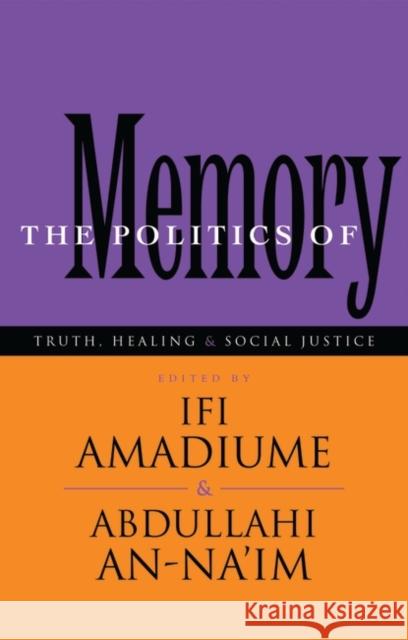The Politics of Memory: Truth, Healing and Social Justice » książka
The Politics of Memory: Truth, Healing and Social Justice
ISBN-13: 9781856498432 / Angielski / Miękka / 2000 / 224 str.
Why does conflict deteriorate into violence and war? How does collective memory influence healing and social justice in post-conflict situations? What is the role of judicial accountability - Crime Tribunals and Truth Commissions - for past violations of human rights?
This book brings together a distinguished group of scholars, policy-makers, justice workers and social activists to answer these questions. In a creative engagement with issues of human rights in relation to truth, healing and social justice, they look at how people rebuild broken communities and the tensions between reconciliation and social justice in post-conflict situations.
The book is structured round the themes of social justice, the nature of conflict, judicial accountability and the role of truth commissions. Opening with Wole Soyinka's exploration of 'that burden of memory that a continent seeks to exorcise through the strategy of reparations', the first part of the book addresses questions of social justice as both ends and means of healing and reconciliation. The contributors go on to look at the nature and dynamics of conflict while parts three and four consider judicial accountability and the role of truth commissions as approachs to healing and social justice. The book concludes with a chapter on the pursuit of justice as an underlying cause of civil wars in Africa and elsewhere.
Exploring the cases of Uganda, Sudan, Rwanda, South Africa, Nigeria, Latin America and the former Yugoslavia and including consideration of the gendered elements of conflict, this book is urgent reading for students and academics in peace and conflict and African Studies.











